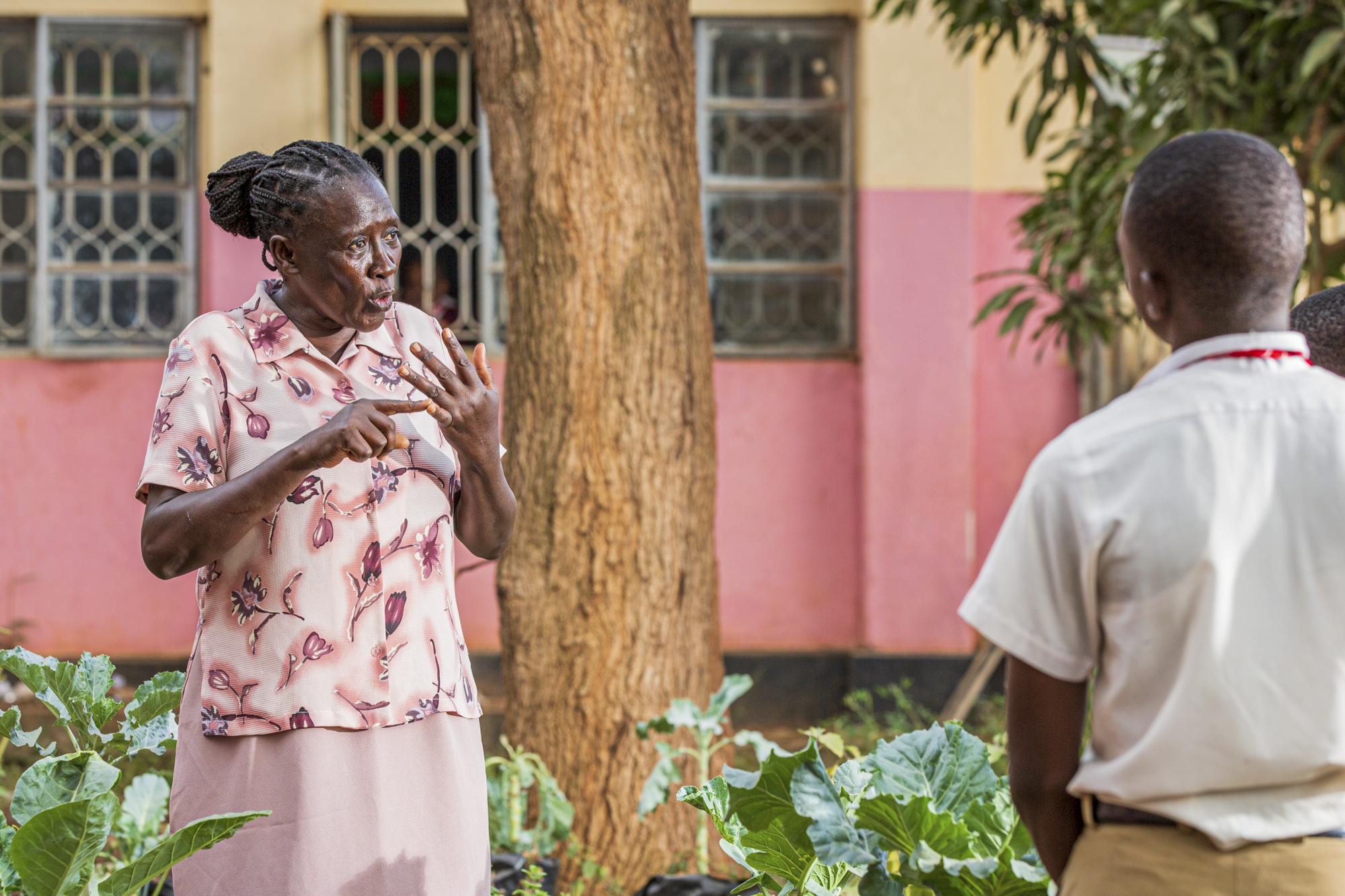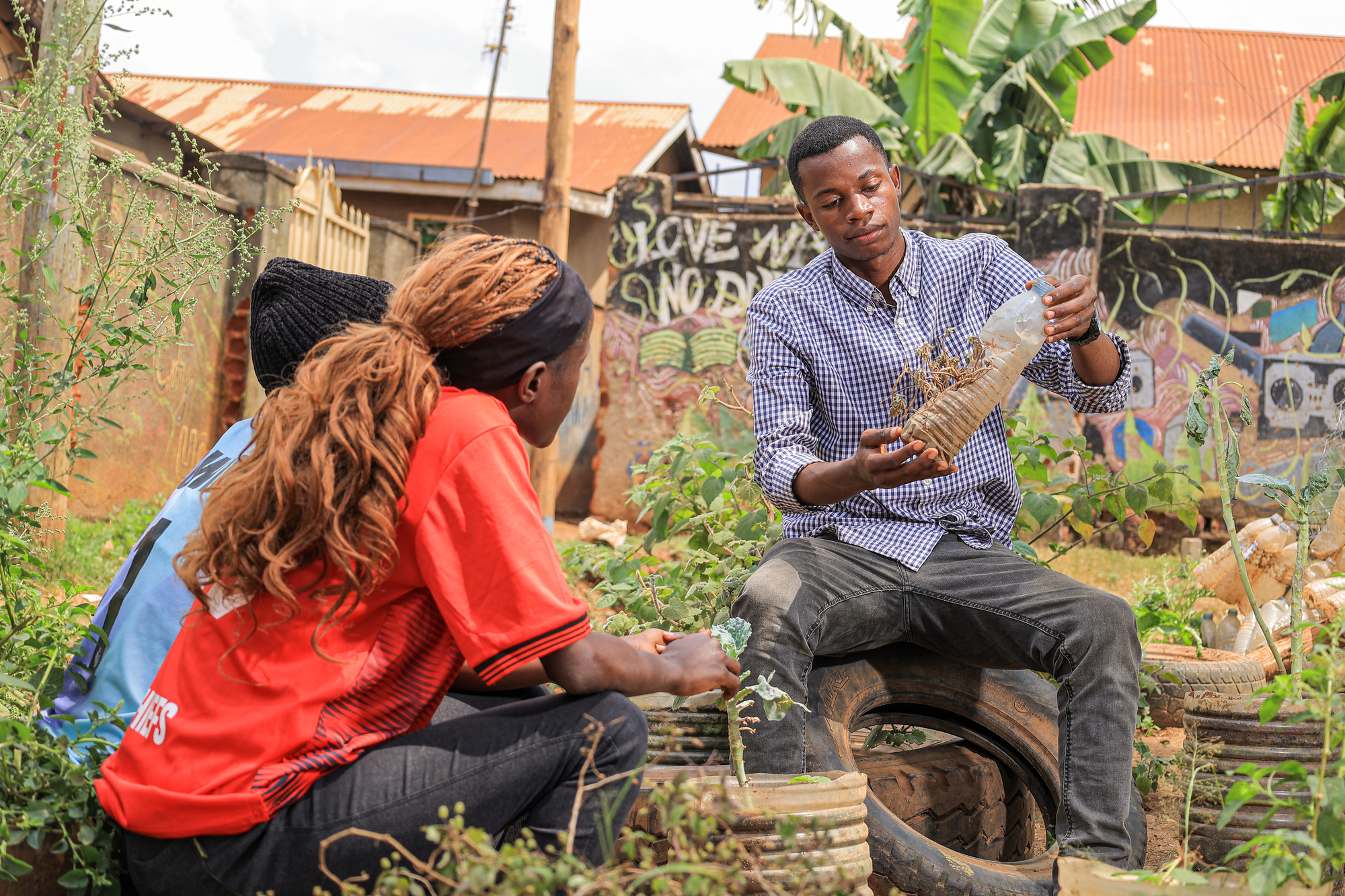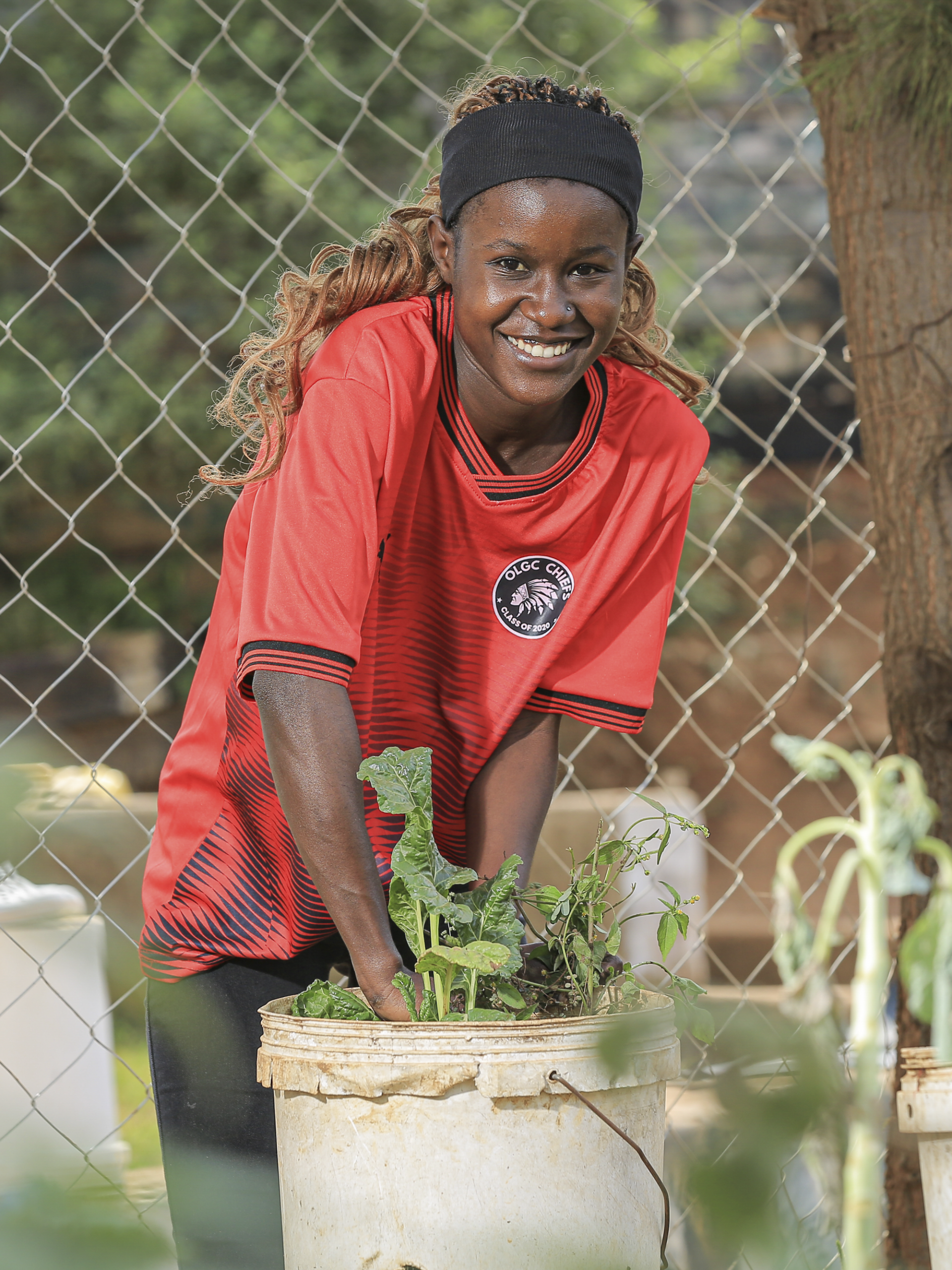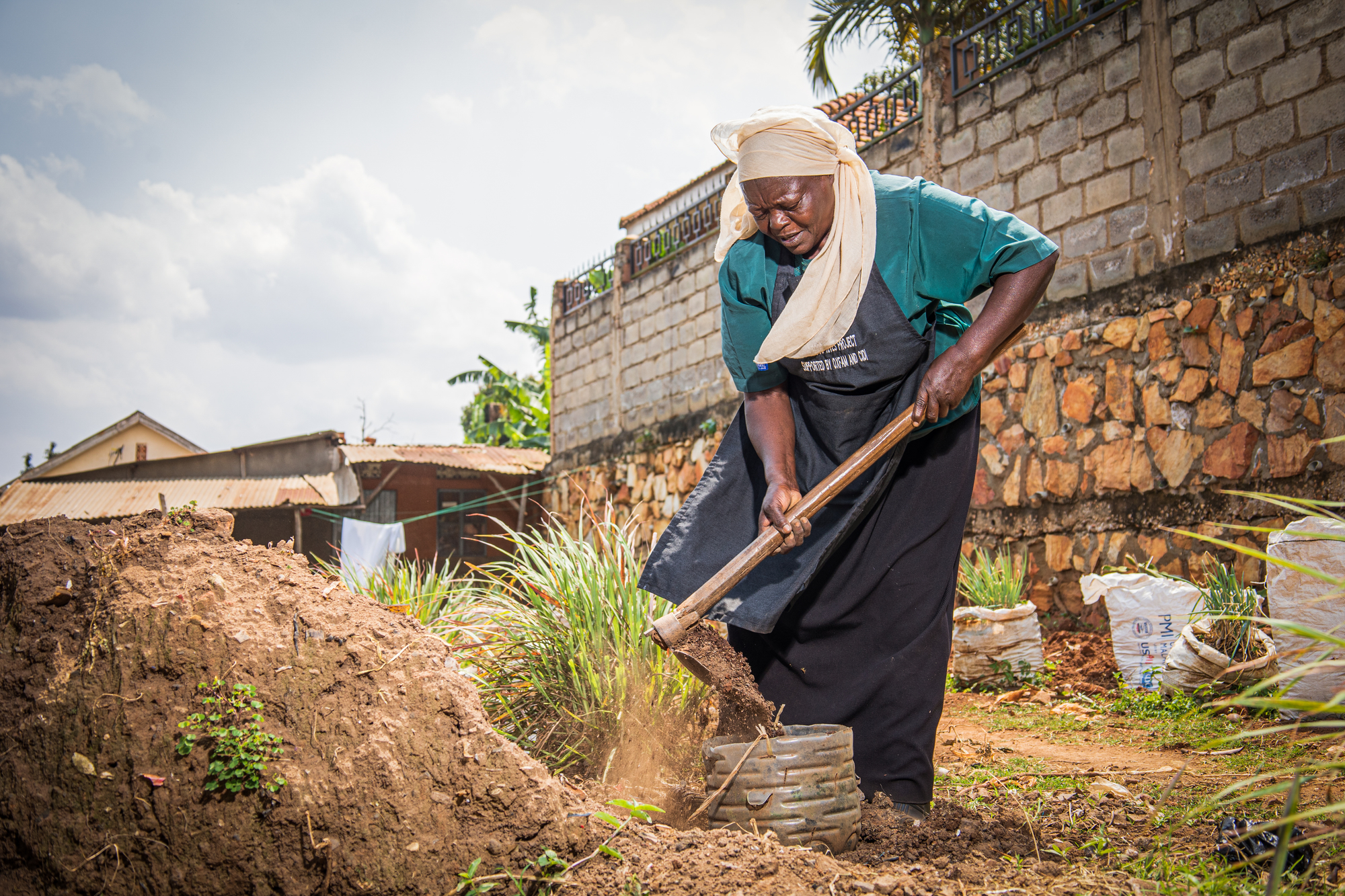From verandas to veggies: How Ugandan women are turning small spaces into sustainable farms
From verandas to veggies: How Ugandan women are turning small spaces into sustainable farms
In Luzira, a suburb of Kampala in Uganda, Nakato Maimuna Umar stands on the veranda outside her home. Her small garden surrounds her, in full bloom. Recycled plastic containers hold vegetables, fruits, and herbs she’s grown herself.
For years, many in Nakato’s community believed farming was only possible in the countryside. But through the Urban Food Hives Project, supported by Oxfam, and partner organization Community Integrated Development Initiatives (CIDI), she and others are proving that even the smallest city space can hold a harvest, and nurture community change.
“It’s possible to do farming in the smallest space available, like on a veranda,” she says.
The project teaches women like Nakato how to reuse everyday materials, from plastic bottles to discarded car tires, turning them into planters. She also learned how to make organic fertilizers and natural pesticides using locally available ingredients. Nakato remembers once having to buy herbs like lemongrass and mujaaja, staples in Ugandan cooking and tea. Now, she can grow her own.
As a single mother, her garden is a source of hope as well as a source of food. It’s how she keeps her son in school.
“When I grow the crops, I sell the surplus so that I can facilitate the schooling of my children,” she explains.
In just one planting season, Nakato earned 200,000 UGX (80.95 CAD) from a single harvest of eggplants and greens. At the Harvest Money Expo, Uganda's largest agricultural event, Nakato showcased her produce and spices, selling all that she had brought.
“We came back very happy,” she remembers.

A community movement takes root
Across Kampala and Soroti, women and youth are transforming verandas, courtyards, and schools into sustainable urban farms.
At Luzira Church of Uganda Primary School, teacher Grace Ajilong tends to one of the program’s model gardens.
“We used to think farming could only be done in rural areas,” she says. “Now, I’ve learned that even the smallest piece of land, within the veranda or the compound, you can benefit from it.”
Participants in the Urban Food Hives Project have gained practical urban farming techniques, entrepreneurial skills, and lessons in recycling and reuse. From single mothers to youth organizations like CIVACT Uganda, the project has strengthened local food systems and forged new community bonds.
In a country where more than 13 million people live in urban areas, a number expected to rise to 21 million by 2040, urban farming offers a way to grow fresh food locally while building stronger and healthier communities.

Scattering seeds of climate resilience
These small gardens are more than sources of food and income. They’re models for how urban communities can adapt to the growing impacts of climate change, leading the way for positive change.
Rising temperatures and unpredictable rainfall have made it harder for farmers around the world to rely on traditional agriculture. Urban farming offers creative, sustainable solutions: recycling waste, conserving water, and reducing dependence on imported foods and chemical fertilizers.
“The main aim of the project was to create food systems that are more equitable, resilient, and sustainable,” says Anna Ruyondo Kabahukya, Project Lead at Oxfam in Uganda.
The Urban Food Hives Project reflects Oxfam’s broader climate justice work, rooted in supporting female farmers, advocating for fair climate financing, and calling on wealthy countries and corporations to make rich polluters pay for the damage they’ve caused.
As world leaders gather for COP30 on November 10th, communities like these in Uganda remind us that solutions to the climate crisis are already growing: on verandas, in backyards, and in the hands of women and youth.


Growing together for the future
Over the past four years, the project has helped to provide households with food, generate income, and empower women and youth as champions of community change.
“With future funding, we shall be able to scale up and support more people,” says Anna.
Back on her veranda, Nakato tends to her small garden, carefully filling a recycled bottle with soil and showing off her harvest of pawpaw. On her apron, the words Urban Food Hives Project stand proud. The space feeds her family, sends her son to school, and inspires others in her community to start their own small gardens, turning their verandas into veggies.
As COP30 begins, Oxfam is urging governments and corporations to commit to ambitious levels of climate finance, to make rich polluters pay, and to invest in community-led solutions like these that are already working.

You can help
Join us to keep supporting women-led climate solutions that build resilience and equality.

